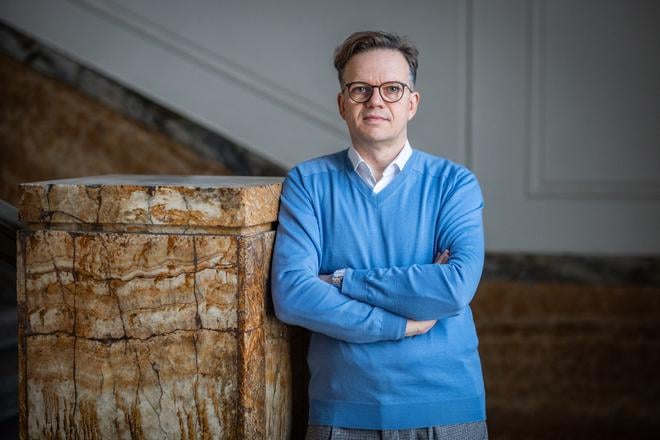The recently deceased writer, screenwriter and director Eva Borušovičová once wrote – with a touch of exaggeration – that Germanist Jozef Tancer, rather than going to the library, prefers to translate German poems himself when he needs them for his university students. Tancer admits there’s some truth to that.
Jozef Tancer
Born in 1975, he studied German language and history at the Faculty of Arts (FoA) of Comenius University in Bratislava. In 2005 he received his PhD and in 2013 he completed his habilitation at the FoA, in the theory of literature and the history of specific national literatures. He has participated in a number of study, research and lecture visits abroad (mainly in Germany and Austria). In 2011/2012 he received the Lisa Meitner scholarship at the University of Vienna. He is a member of the Commission of the Austrian and Hungarian Academies of Sciences for Literary Science and Cultural Sciences, as well as a member of the Excellent Research Team “National Literatures as Reflected in Literary Science” at the FoA. He led the Department of German, Dutch and Scandinavian Studies of the FoA between 2012 and 2024, and has been a Vice-Rector of Comenius University since February 2019. In 2016 he published the book Untangled Tongues
“It’s a somewhat hyperbolic description of something I’ve actually been doing for years," Tancer told The Slovak Spectator.
As a student, he began translating poems from German – not with the aim of publishing them, but because it helped him better understand the original. He has continued this practice ever since, even though, as vice-rector at Comenius University, he no longer has as much time for it as he once did.
“To translate means to engage with every single word – in all its contexts, all its nuances – and to immerse oneself deeply in the text,” he said, adding that he encourages students to try translating German poetry, even if they don’t manage to replicate the rhyme.
From history to German
Tancer acquired a love for the German language as early as in primary school. He learned it as a pupil, took private lessons, and then continued to study it at gymnasium. When it came to enrolling at university, he wanted primarily to study history, so he picked German as an easy extra subject. During a study stay in Germany, however, his interests changed and he became more interested in German studies and German literature than in history. Nevertheless, he remains connected to the field of history.
“In my teaching practice I teach the history of literature, I am a literary historian,” he says.
His interest in history led him to conduct extensive interviews on multilingualism with so-called Pressburgers, i.e. those citizens of Bratislava who experienced the city when it was multilingual and four languages – Slovak, Hungarian, German and Yiddish – were widely spoken by its residents.
The result was the book Untangled Tongues, published in 2016. Today, the first print run is completely sold out, but Tancer has not agreed to a simple reprinting, limited to updates about some of his respondents, most of whom have since passed away. Instead, he cites the need to reflect on where the topic of multilingualism in Bratislava has moved over the past decade.


